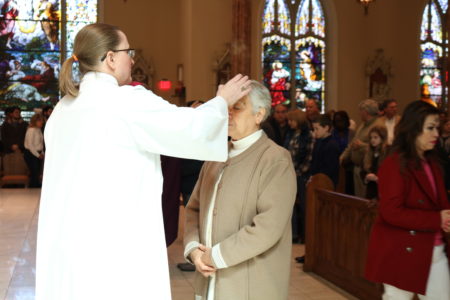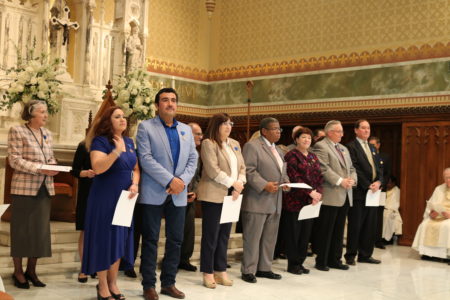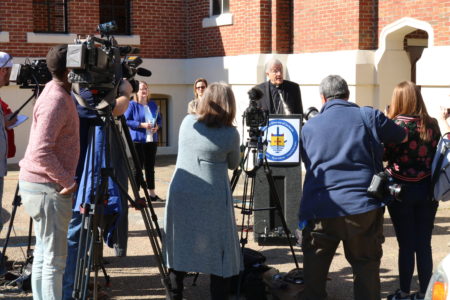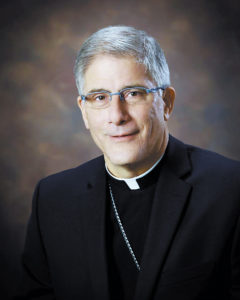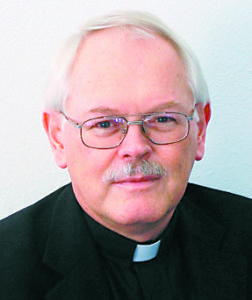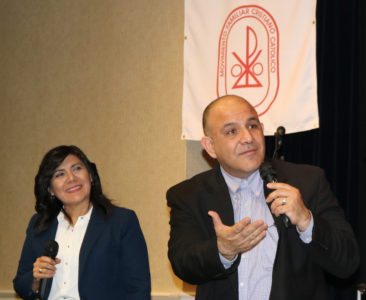
RICHLAND – (i-d) Elsy Acatitla y Carlos Canceco directores del centro Alianza de Vida (Foto por Berta Mexidor)
Por Berta Mexidor
RIDGELAND – El Movimiento Familiar Católico Cristiano (MFCC- USA) celebró su asamblea regional Alabama-Mississippi el pasado el sábado 9 de marzo en el centro comunitario de la ciudad de Richland. A la convocatoria asistieron alrededor de 55 parejas de diferentes parroquias de la Diócesis y 5 matrimonios de Alabama, acompañados por sus hijos. El obispo Joseph Kopacz ofició la Misa al final del día después de acompañar a las familias durante actividades del día junto a los sacerdotes Marco Antonio Sanchez y Odel Medina, ST ambos asesores y directores espirituales del Movimiento
El matrimonio de Carlos Canceco y Elsy Acatitla fueron los facilitadores de la sesión de la mañana. Con cantos y reflexiones esta pareja dio otro toque de alegría a una audiencia que disfrutó su presentación acerca del rol del amor en la pareja y la familia. Elsy y Canseco tienen un programa de radio en EWTN, Radio Católica Mundial, titulado “Hoy es tu gran día” a las doce meridiano todos los días. El MFCC- USA ya tiene raíces profundas en Mississippi. Los delegados anteriores Lupe y Mirna Rios, radicados en Houston y con más de 33 años en el Movimiento, trabajaron en la consolidación del mismo por dos años como delegados misioneros y regresaron a traer el saludo del presidente del MFCC. Ahora, esta pareja trabaja en un nuevo proyecto a nivel nacional, con un servicio del MFCC llamado ‘Madres responsables de su familia’, para mujeres viudas, divorciadas y madres solteras.”
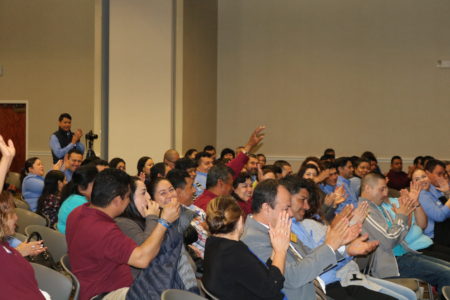
RICHLAND – Con gestos de cariño, alegría, amistad y hermandad en Cristo, las parejas escucharon el mensaje alentador de los facilitadores, los líderes del movimiento y los testimonios de las familias (Foto por Berta Mexidor)
En la medida que el movimiento crece, las familias se fortalecen. Los delegados Francisco e Isabel Mazy y presidentes Maribel y Juan Melo agradecieron a todos los presentes por su asistencia y colaboración con ellos.
La familia de Damián y Naty Román tuvo un testimonio emotivo, donde el mensaje de Espiritualidad entre familia, servicio y participación fue el de tener paciencia con el trabajo de Dios en los hijos. La familia de Joel y Rosalinda Montoya testimonió sobre el Compromiso, resumido por Joel con estas palabras “mi abuelo me enseñó que la palabra vale más que cualquier contrato”
Las familias del MFCC celebraron su conferencia con gran júbilo, con el apoyo de sus asesores: las hermanas María Elena, María Josefa y Magdalena, todas Misioneras Guadalupanas del Espíritu Santo y el hermano Ted, coordinador del Ministerio Hispano. Tuvieron además, la presencia de Charlene Bearden, coordinadora de la oficina diocesana del Ministerio Familiar y la actuación del grupo Ángeles de Cristo de la misión de St. Martin de Tours Hazlehurst.

